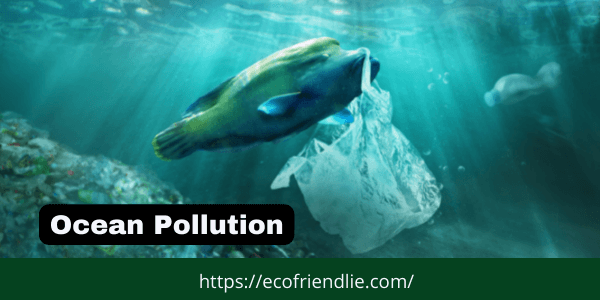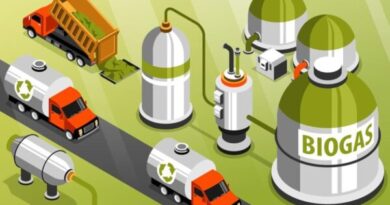Dramatic win in plastic waste can curb ocean pollution
A significant citizen suit against a large ocean pollution resulted in a large settlement and a promise to do better in the future. The case has sparked a wave of transition in an industry that routinely pollutes without consequence.
Plastic pollutants are one of the greatest causes of ocean pollution. but, there are many solutions to plastic pollution that you can take part in nowadays. this article covers some of the basic statistics approximately ocean plastic pollutants and gives several particular plastic pollutants solutions that everybody can participate in.
Diane Wilson and a group of volunteers spent approximately every day for three years poking through the buggy, marshy grasses of the Gulf Coast, combing stretches of pebbly sand, or kayaking alongside a massive petrochemical plant, all in seek of small plastic waste particles known as nurdles.
They ended up finding the lentil-sized components all over the place, filling gallon bags with them and immersing bottles in raw plastic powder-tainted water.
Wilson, a retired shrimp boat captain, and fisherwoman packed a trailer with 2,400 of those samples approximately 46 million individual pellets, and drove her pickup truck to federal court to confront Formosa Plastic waste, the company responsible for the spills, in March 2019.
The victory she achieved there resulted in the largest-ever settlement of a Clean Water Act lawsuit brought by a private citizen. It was a watershed moment in the fight against a type of waste that, despite accounting for a large proportion of the microplastics sucking the world’s seas, receives far less consideration than the more noticeable tide of bottles, bags, and other post-consumer waste.
Wilson’s victory serves as a warning to others who make and handle nurdles that leaking plastic waste into the climate can have serious consequences. Pellet regulation remains lax, but the ripples of change sparked by the case could signal the start of a new, more rigorous strategy for their management.
Nurdles are the basic components of a wide range of plastic items, including yogurt containers, toothpaste tubes, and automobile parts. Each year, Formosa’s plant converts millions of tonnes of oil and gas byproducts into pellets and plastic powder, a raw form of vinyl.
Wilson’s group was able to convince the judge listening to her case that the intricate was dumping plastics into Cox Creek and Lavaca Bay, which are part of an interconnected system of Gulf of Mexico inlets halfway between Houston and Corpus Christi.
According to the judge’s decision, Formosa is a “serial offender” who has committed “enormous violations.” Following the ruling, the company, which is a subsidiary of Taiwan’s Formosa Plastics Team world’s 6th largest chemical manufacturer—agreed to pay $50 million to a trust that will fund local conservation measures, scientific research, and sustainable fishing cooperative. Formosa has also pledged to stop spills and clean up its mess.
According to Karen Hansen, a lawyer with the firm Beveridge & Diamond in Austin, Texas, who embodies companies on water quality issues, those costs have gotten the attention of top management elsewhere around the industry. “No company intends the liability that Formosa Plastics has,” she says, adding that others are now attempting to reduce their own nurdle leaks.
Wilson sees her case as a robust model, with citizen science and empowerment carrying significant ocean pollution accountable, and citizen regulation ensuring that the changes are implemented. “The reverberations have been far-reaching,” Hansen agrees.
Mind-Boggling Numbers
Plastic producers aren’t the only ones that cause ocean pollution. According to Jace Tunnell, a marine biologist at the University of Texas at Austin’s Marine Science Institute, “transporters, resellers overall supply chain” is losing pellets.
Nurdles frequently spill as they are loaded onto and off trains. According to Tunnell, who originally formed Nurdle Patrol, a citizen science project awarded a $1 million grant from Wilson’s trust, they accumulate on tracks and then wash toward rivers, lakes, or coastlines when it rains.
The figures are staggering. According to one research, between five and 53 billion pellets are absorbed by the earth in the United Kingdom each year.
A cargo ship on the Mississippi River near New Orleans spilled over 700 million in 2020. Pellets are still washing up on hundreds of miles of coastline in Sri Lanka after a container ship carrying 1,700 metric tonnes of plastic sank last year, causing the world’s largest plastic spill.
Nurdles are approximated to enter the world’s ocean pollution at a rate of 230,000 metric tonnes per year, taking account of 24 percent of spilled microplastics and nearly 2% of total marine plastics, according to a 2016 report.
Even as public awareness of plastic waste keeps growing, fossil fuel companies and their petrochemical subsidiaries are preparing to produce more plastic than ever before in the coming years. Plastic is seen as a promising source of revenue growth by the sector, which anticipates that action against climate change will reduce the supply of oil and gas. As a result, unless action is taken to identify nurdle spills, they may become even more common and destructive.
The expansion of the industry is well underway on the Gulf Coast, which has long been the center of U.S. plastic production, with new plants opening and existing ones expanding. ExxonMobil and SABIC, a Saudi petrochemical conglomerate, recently started up a massive new complex near Corpus Christi. The plant at the center of the nurdle case, Formosa, recently completed a $5 billion growth. One of the company’s lawyers claimed the complicated was producing a trillion pellets per day even before it was completed.
Following Wilson’s victory, the Texas Commission on Environmental Quality, the state’s environmental regulator, clamped specifications for companies that make and handle nurdles last year. The new language, according to Neil McQueen of the Surfrider Foundation, is too ambiguous and allows industry to define terms to its advantage. Companies are preparing for harder compliance, according to Hansen.
Other activists are following Wilson’s lead in other places, stepping in where regulators have failed. Following the Formosa decision, environmentalists in South Carolina began collecting nurdles around Charleston Harbor. Last year, they received a $1 million settlement from Frontier Logistics, a plastics distribution company, as well as a contract to make rules to ensure reduce future spills of ocean pollution.
‘It Was Going Right Into The Creek’
Wilson is the fourth generation of her family to make a living on the Matagorda Bay system’s waters tucked behind barrier islands. The area’s once-abundant habitats home to over 400 bird species and dolphins, alligators, and sea turtles have been dwindling for decades as a result of development, industrial pollution, and threats like algal blooms.
Wilson became an environmental activist more than 30 years ago as a result of this, as well as a growing awareness of petrochemicals’ toxic footprint.
Her interest in nurdles began in 2012 when a former Formosa employee informed her that the plant was losing a lot of them. Wilson initially attempted to persuade state authorities to act. The EPA dispatched inspectors and fined Formosa $122,000, but Wilson recognized that his actions would not prevent the spills.
So, under the umbrella of San Antonio Bay Estuarine Waterkeeper, a collective she leads, she and a few others started what became near-daily nurdle- and powder-collecting outings in January 2016. Wilson tells as we sit outside her little purple house, beneath a tree with Spanish moss-draped over its thick, twisting branches, “We started wading out on the bay.” “Along the shores, near the boat ramps,” says the narrator. The pellets were easy to spot once they finally sorted out where to look, “and they’re everywhere.”
She bought a cheap kayak and began paddling along Cox Creek, which runs directly through Formosa’s 2,500-acre complex. One of the discharge points, a ditch “coming right from the plant,” she discovered. “It went straight to the fence, and it went straight into the creek,” she says. Pellets carpeted the marshy shore in one location nearby, “like that deep,” she said, her hands about five inches apart.
Wilson’s lawyers were able to disprove one of Formosa’s major arguments any plastics it disposed of were only “trace” accumulations, as permitted by its permit—due to the quantity and diligent documentary evidence of the samples her group collected, as well as hundreds of photos and videos.
“He was talking about ‘trace,’ and I had a video of Diane in a kayak on the creek,” says Amy Johnson, one of Wilson’s lawyers, while questioning one of the company’s expert evidence. “And all around her, there is a bed of plastics floating on the water, likely five or ten feet out,” she remembers. “We all know that’s not even a speck.”
‘You’ll Never Be Able To Count Them All’
In the meantime, the trust’s funds are being distributed. The creation of a sustainable fishing cooperative is the largest project, costing $20 million. The project is overseen by a Georgia-based federation of Black farming cooperatives, with the goal of revitalizing the bays’ ecosystems so that small fishermen and shrimpers have a future. Other grants support beach restoration, park development, and environmental education for children at YMCA camps.
Another focus of the trust is scientific research funding. More than 5,000 volunteers have participated in Tunnell’s Nurdle Patrol, which has completed 11,000 pellet assessments. The measurement they use is how many nurdles a person can pick up by hand in 10 minutes; respondents scoop as many as they can, count them, and present the results.
Tunnell verifies the information before plotting it on a map. He explains, “Now you insert it with where the industries are boom, it matches up.” Clusters of red (101 to 1,000 nurdles collected) and purple dots can be found all over New Orleans and the Mississippi River Delta (more than 1,000 nurdles). A steady line of red and orange (31 to 100 nurdles) runs all the way down to Mexico in the petrochemical hub around Houston.
Reds on the Great Lakes; near Philadelphia and Trenton, New Jersey; around Charleston, South Carolina; and in the Pacific Northwest data is trickling in from other parts of the country, and it gives a glimpse of nurdles’ reach. Nurdle discharges are prohibited in only one state, according to Tunnell: California. Nurdle Patrol encourages individuals to use their data to lobby legislators for more stringent regulations.
Nurdles are also being studied by researchers. When birds and sea animals eat pellets, they can clog or endure organ damage, or they can die of starvation if their stomachs are full of plastic. Toxins that cling to floating pellets are another source of ocean pollution. Nurdles have been found to contain dangerous toxins such as mercury, the long-outlawed pesticide DDT, and a group of extremely hazardous chemicals known as PCBs.
Wilson’s volunteers are still searching for plastic near the Formosa plant. Ronnie Hamrick, a retired Formosa worker, takes to a small stretch of beach near a bait stand on a hot August day in 2021, where a layer of white scum coats the water. “This is how the whole bay is,” he says. “You’ve got a bunch of kids swimming in it.”
Later, I follow him down a steep embankment to the edge of Cox Creek, which is across a two-lane highway from the plant. With a rake, he pulls thick clumps of vegetation aside, wiping sweat from his face. Hundreds of white pellets float to the surface of the small puddle it reveals, which is about 10 inches square.
There are more nurdles all over Hamrick’s looks, indicating how difficult it will be to clean up this mess without irreversibly harming the ecosystem. He takes a plant from the ground and holds it up to show the pellets that are laced densely throughout the main stem, like tiny eggs. He tells, “I’ll get you more over here, I see a bunch of them.” When I ask Hamrick how many nurdles he thinks are in a particular location, he responds with a reminder of Formosa’s massive spills. “You’ll never get through counting them,” he admits dejectedly.
Reporting for this story was supported by the McGraw Fellowship for Business Journalism at the City University of New York’s Craig Newmark Graduate School of Journalism.




